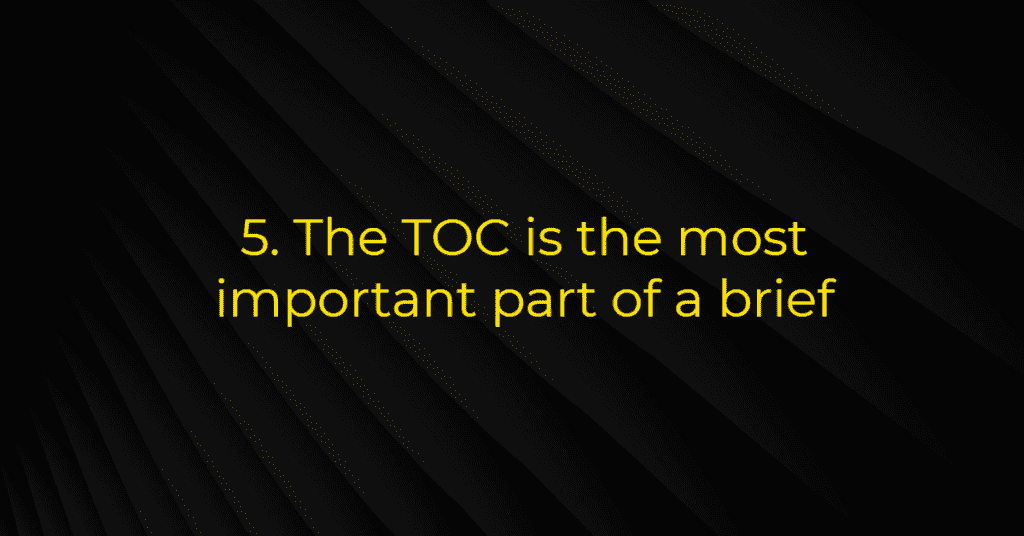By Chris Dralla, Esq.
A solo law practice is like a start-up
Launching any new venture is like jumping off a cliff: it’s risky, but exhilarating.
I’ve had that thrilling experience twice so far in my career. The first time was a few years after I finished law school, when I opened my own appellate law practice in the Bay Area. The next was in 2014, when we started TypeLaw.
Both times, I could have spared myself a lot of stress if someone had just sat me down and told me what to expect.
I recently had the opportunity to reflect on those experiences in an interview with Authority Magazine for an article called 5 Things I Wish Someone Told Me When I First Became an Attorney.
Valuable lessons for all attorneys
Whether you’re just getting started as a lawyer, considering hanging up your own shingle as a solo practitioner, or thinking about launching a legaltech start-up of your own, I hope that the insights I share will save you some time, frustration, and heartache.
Here are the five things that I wish someone had told me before I jumped off the cliff…
1. Success takes time

I wish someone had told me how long it takes to build something truly successful. In legaltech, it starts with building the product, getting an investor, getting a first customer, creating something profitable, scaling the business…
Each of those can be year-long milestones, and over the course of several years, you don’t always get it right the first time. We started TypeLaw 10 years ago, so I wish that somebody had really sat me down and got me to understand what 10 years was going to take and what it was going to feel like.
2. You may feel lonely

I wish I’d known how isolating it can be to start a business or a law firm. When I started my firm, and then started TypeLaw, it was just me, or myself and my co-founder, and we really didn’t have a ton of expertise or mentorship to lean on. And so it was really isolating.
One of the best ways around that is to find small groups of people who are in similar situations, either starting companies themselves, or people who have had some previous successes, so you can lean on their experiences and their abilities. But at the beginning, it is really isolating.
3. Slow down. Take time to celebrate.

I wish someone had told me to just slow down. Given that it takes a long time to build something successful and it’s not always a straight path, it’s helpful to take breaks along the way to celebrate all the small wins and milestones.
Fortunately, we realized this pretty early on at TypeLaw. Even if it’s a fast race on a day-to-day basis, it’s important to remember to slow down from time-to-time, as well.
4. Fire bad clients

Not every client is a good client, and you need to fire the bad ones. We learned this the hard way at the very beginning of TypeLaw. At the time, every dollar and every customer was vital, so we took on nearly anyone that wanted to use our automated legal brief formatting platform—and then bent over backwards to serve them.
Over time, we realized that some of these customers had unreasonable expectations and were being overly demanding of our time. What’s more, they weren’t necessarily helping us build a better product, one that other lawyers would want to use.
So, we started refining our outreach and only bringing on customers that really matched with our business. And once you find those best-fit customers or clients, they’re invaluable. They help you grow your business, they use your product or services, they’re good people to work with, and that’s where you can start to build something significant.
5. A winning brief starts with the TOC

This last advice is specifically for lawyers writing legal briefs either at the appellate level, or a big motion for summary judgment: Yes, tables can be a huge pain, but you need to pay close attention to your table of contents (TOC) and table of authorities (TOA).
Our research into The Anatomy of a Legal Brief found that an average brief includes:
- 6371 words
- 16 headings (nested into 4 levels)
- 70 paragraphs
- 33 sources (24 cases, 6 statutes, 1 rule, 1 constitution, and 1 other authority)
- 67 citations to authority
- 139 citations to the record
That’s a lot for a reader to get through. We’ve worked with judges and justices and big appellate lawyers on both sides of the aisle. In every case, they talk about how a good TOC presents a good summary of the argument.
It’s the first thing that people read, so spend some time understanding how to put together a TOC that could basically be ripped out and delivered to a justice to read, and in a few seconds, they could easily understand what your point is and what you’re trying to accomplish. TypeLaw can automatically create accurate, local-rule compliant tables from your draft brief in minutes, so you can focus on your argument.
Be brave and take the leap
Embarking on a career as an attorney, launching your own law firm, or founding a startup are all exciting and challenging endeavors—that each come with their own set of challenges. I hope that sharing my experiences and the lessons I learned along the way will help you navigate those challenges more smoothly, and avoid some of the pitfalls I encountered when I first started.


